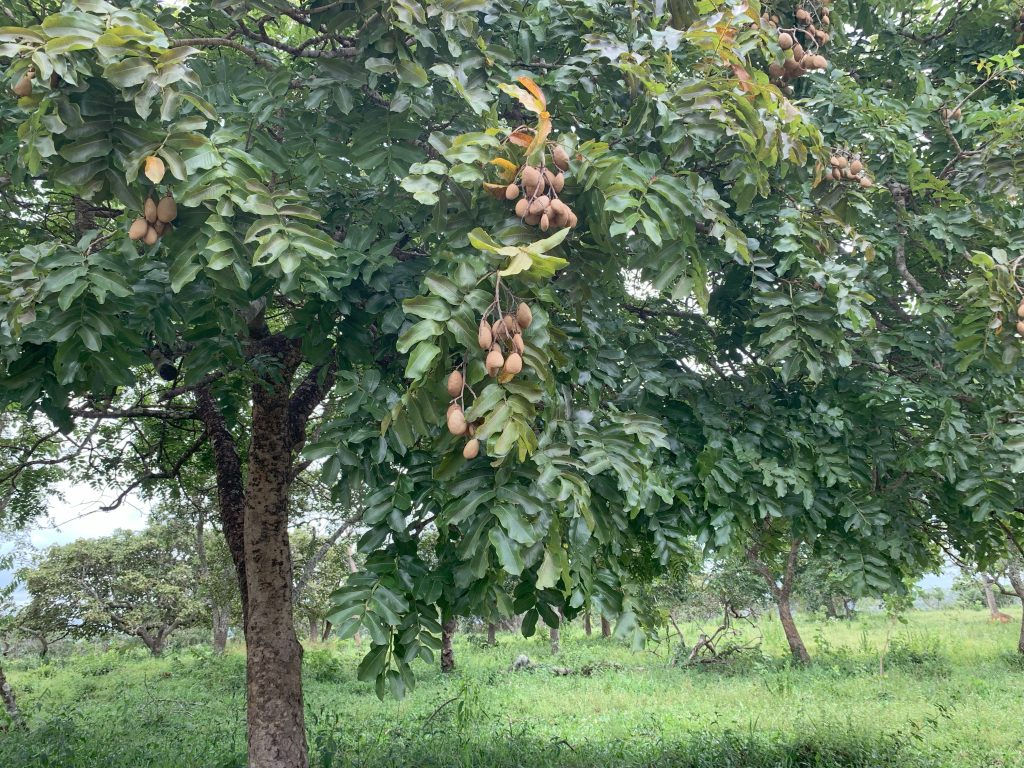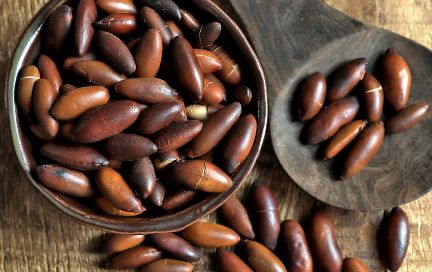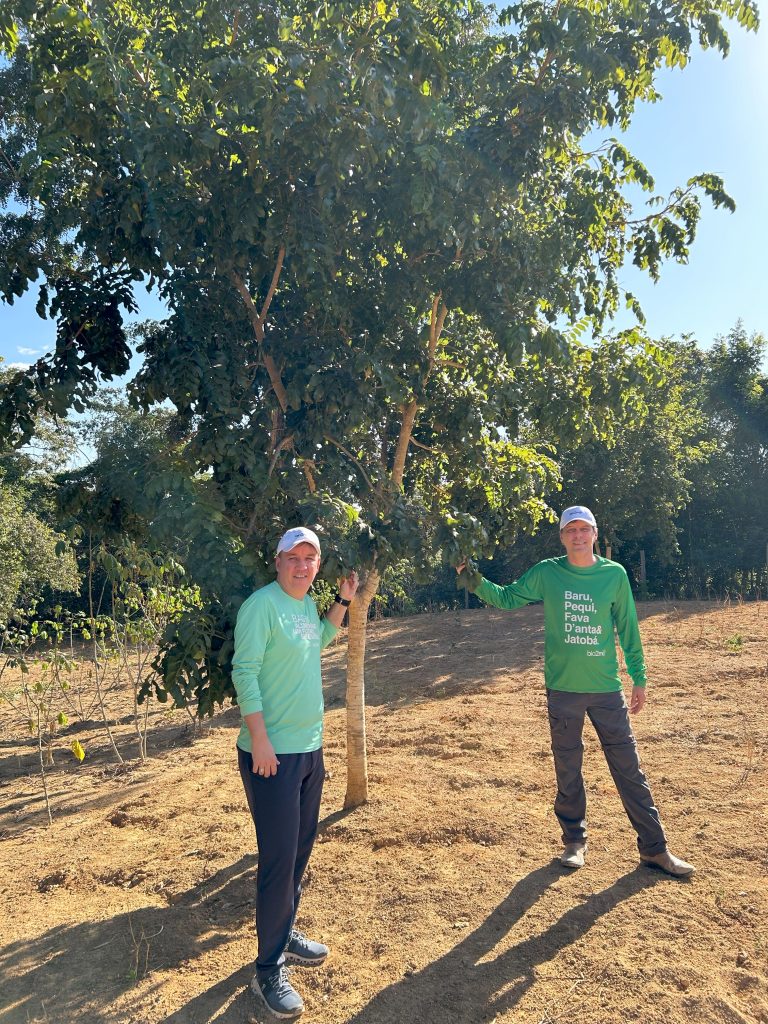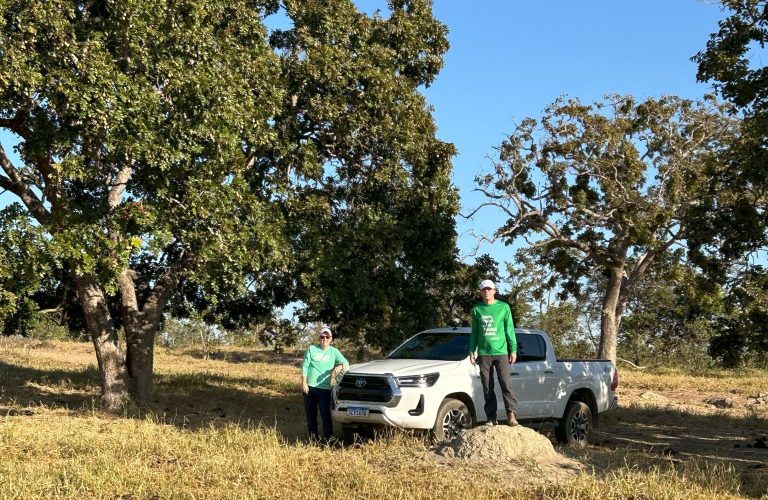São Paulo – In a world that extensively discusses the income that could come from preservation, a Brazilian startup has stood out for establishing such a business, attracting investment, and harvesting products. Bio2Me produces baru nuts and fava d’anta in native Cerrado areas.
Determined to significantly advance the products obtained from this biome and from across the areas it operates, Bio2Me aims to have Arab countries as consumers of baru nuts. The company envisions investment partnerships with the region but prefers to take one step at a time, starting with trade.

“Bio2Me is a farm operator—we manage farms in the Brazilian Cerrado, focusing on preserved and conserved areas as well as degraded ones that we’ll restore with native seedlings,” says one of the founding partners, CFO Marcio Campos, considering the range of products that can be explored from the six thousand native tree species in the Cerrado.
One of the products already in Bio2Me’s hands is the baru nut, which the startup aims to introduce to the Arab market by 2025. The goal is to supply between one and two tonnes to the region. “Arabs are the largest consumers of nuts and peanuts in the world,” says Campos, noting that Brazil’s friendly relations with the entire world could benefit business with the region.

Bio2Me currently operates a 500-acre farm in the municipality of Luziânia, Goiás state, owned by the family of one of the founding partners, Claudio Fernandes. The company is also starting to work with a 4,200-hectare farm in Cavalcante, also in Goiás, under a lease agreement with a purchase option. Baru nuts supplied by communities are also sold through Vista, a company run by the same partners that handles commercialization.
The nuts are currently supplied roasted to Brazilian distributors and gourmet stores in 50 and 100-gram packages under the Vista brand. However, the goal is to also produce baru nut products such as paste, flour, farofa, and oil, and to export 95% or 100% of the production. The company operates on the principle that exporting allows for better compensation for those working in the sector, thus providing a quality life for the communities producing the nuts, encouraging them to remain in the field. Having a reliable workforce is essential for maintaining this type of business, where the baru fruit is harvested manually.
Farmers from Rio

Bio2Me’s sustainable strategy was developed gradually by the Campos and Fernandes. Both from Rio, with Campos being an economist and Fernandes an electrical engineer, the agribusiness came into the lives of the two cousins somewhat by chance when Fernandes encountered his father’s inheritance: a 100% preserved farm in Luziânia.
The engineer discovered that there were baru nuts on the farm and realized the potential when, alongside his cousin and then business partner Campos, he saw the price of the product in a market: BRL 150-200 [USD 30-40] per kilogram. “This could be the answer we need to make money while preserving the forest standing,” Campos recalls about their thoughts at the time.
Following an intensive collaboration with Embrapa, Brazi’’s agricultural research agency, the two first established Vista Produtos Sustentáveis in 2021 for the trade of Cerrado bioactives. However, upon seeking suppliers in the market, they realized that the supply chain was very disorganized and needed improvements. Then, in 2022, they founded Bio2Me to produce and address the other gaps in the sector.
Filling gaps
Often working in partnership with institutions, Bio2Me is addressing a number of gaps to structure the sector. One of these is the slow process of cracking the baru fruit and extracting the nut, which affects the supply chain’s efficiency. This should be resolved with the creation of an effective machine. Bio2Me is also developing a traceability project for the bioactives, so they reach consumers with a traceable origin, and is studying how to utilize parts of the baru fruit, such as the pulp and the skin.
Bio2Me is also working on developing a neural network to map areas using drones, identifying trees by their canopies and thus assessing how promising the terrain is for bioactive extraction. Other initiatives include training communities that work with Cerrado products, including in fire brigades—fire prevention is an area of focus of the startup—and developing a nursery for native Cerrado seedlings, as finding them on the market is a challenge.
Working with this, the startup’s leaders realized that extracting bioactives is a solution for preservation areas, as, by law, farms need to maintain at least 20% of their land with native vegetation, which is often considered a cost by owners. However, the possibility of generating income from these areas could change this. “The Ministry of Agriculture is saying that in ten years, baru nuts will be to the Cerrado what açaí was to the Amazon biome,” says Campos.
Cerrado products
Baru nuts, which are protein-rich, are considered a superfood and are mainly consumed by vegans and marathon runners. However, their consumer market is still very limited. On the other hand, fava d’anta is a source of components for the pharmaceutical industries. The fava d’anta produced by Bio2Me is sold to a Brazilian exporting industry. The farm operated by the greentech company has 270 baru trees and 420 fava d’anta trees.
Bio2Me’s profile has already caught the market’s attention, to the extent that the company has been recognized for several initiatives aimed at startups and innovation. It is part of the Panela Nestlé project, an initiative by the multinational food company to accelerate innovation, and was one of seven selected for the Cerrado Sustainable Soy project by international consulting firm PwC, which promotes solutions for vegetation conservation in Cerrado areas.
The whole world
Last year, Bio2Me held a market presentation event at the headquarters of the Arab Brazilian Chamber of Commerce (ABCC) in São Paulo, of which it is a member. The company relies on the institution to carry out its plans concerning the Arab market. “I want to export to the whole world, but a primary focus is the Arab market, so our relationship with the Arab Chamber is a long-term one,” says Campos.
Campos and Fernandes are the owners and leaders of Bio2Me, and the startup has two investors: Antonio Nuno Verças and Vicente Parente. Both investors also have stakes in Vista. Bio2Me is currently raising BRL 25 million [USD 4 million]. By July next year, the company aims to be operating 25,000 acres, according to Campos’ projections. The expansion will continue with a strategy focused on preservation and profitability. “There is no green company in the red. This has to be profitable for everyone, because you can only preserve if you have income,” he says.
Read more:
Eco-friendly jewelry brand reaches 11 countries
Abu Dhabi launches hotel carbon calculator
Translated by Guilherme Miranda




